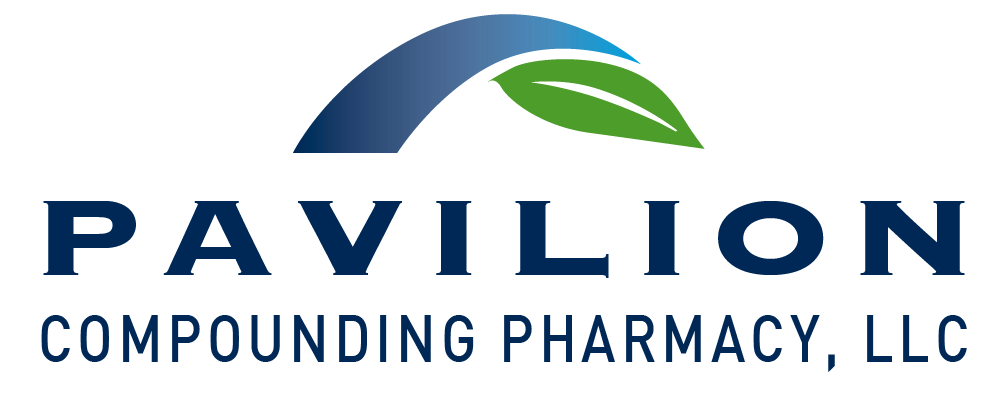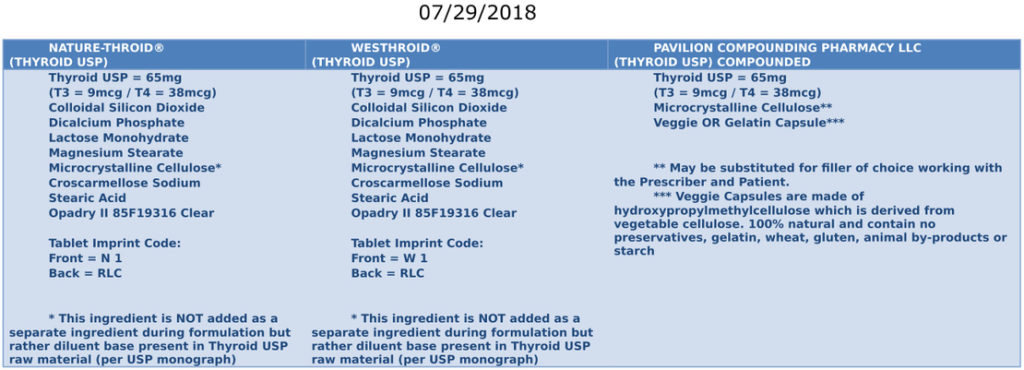What is Thyroid Hormone Therapy?
The thyroid, a butterfly-shaped gland located in the neck, is a critical part of the endocrine system. Your endocrine system produces hormones that send signals to other parts of the body. For instance, a hormone signals stress, so the body can react to it. Thyroid hormone therapy is necessary when the gland fails to function properly. This failure results in you getting too many or too few hormones.
The thyroid gland releases some of the most critical hormones in the body. These hormones influence metabolic rate along with protein synthesis. It also plays a role in calcium homeostasis, which is how calcium moves in and out of cells and other parts of the body.
More About the Thyroid Gland
When a person requires thyroid hormone replacement therapy, the problem may be in the gland itself. The problem may also be in one of the glands that helps regulate such as the anterior pituitary gland or the hypothalamus. It’s a complicated process but an important one.
Broken down, it looks like this:
- The hypothalamus in the brain releases the thyrotropin-releasing hormone that stimulates the anterior pituitary gland.
- When stimulated, the anterior pituitary gland secretes thyroid-stimulating hormones.
- The thyroid then releases triiodothyronine (T3), thyroxine (T4) and peptide hormone calcitonin.
These three hormones directly or indirectly affect:
- Basal metabolic rate
- Appetite
- Absorption in the gut
- Gut motility
- Breakdown of glucose
- Breakdown of fats
- Number of free fatty acids
- Cholesterol levels
- Heat rate and strength
- Rate of respiration
- Mitochondrial activity
- Blood flow
- Body temperature
- Brain maturation
- Sexual function
- Sleep
- Thought patterns
The thyroid is a clinically significant gland, one that affects almost every major body system and organ. Compounded thyroid medication can help stabilize hormone levels when the gland fails to function normally.
Interesting Thyroid Statistics
Thyroid conditions that result in thyroid replacement therapy from a compounding pharmacy are possible in both children and adults. The two most common thyroid problems typically affect adults, usually, older women. Consider some interesting statistics about thyroid conditions:
- It is estimated that around 20 million people in the U.S. will develop a form of thyroid disease during their lifetime. That includes one out of every eight women.
- Sixty percent of people with a thyroid condition will have no idea they have a problem.
- Thyroid diseases are a global problem with 110 countries reporting cases.
- Globally, 1.6 billion people are at risk for a thyroid condition.
- More than 52,000 people develop thyroid cancer each year.
- Thyroid cancer is the sixth most common cancer in women.
- Most thyroid cancers are treatable, but a small number become aggressive and metastasize.
- An estimated 2,170 people die from this cancer and almost half of them are men.
- Medullary and anaplastic thyroid cancers are metastatic diseases, meaning they are aggressive and likely to spread. These forms of cancer make up only 5 % of the cases, though.
Diseases of the Thyroid
Multiple diseases can affect the thyroid gland. These include:
- Goiter – An enlargement of the gland
- Hyperthyroidism – The gland secretes more hormones than the body needs.
- Hypothyroidism – The gland secretes fewer hormones than the body needs.
- Thyroid cancer – There are several kinds of thyroid cancer.
- Thyroid nodules – Lumps on the gland
- Thyroiditis – Inflammation of the gland
- Hashimoto’s disease – An autoimmune disease that destroys the thyroid gland.
The two most common conditions are hypothyroidism and hyperthyroidism.
Hypothyroidism
Simply put, hypothyroidism means underactive thyroid. The gland does not produce enough hormones to meet the body’s needs. When this happens, things start to slow down.
Hypothyroidism is a condition that affects five out of every 100 people and is especially prevalent in older women.
Symptoms of hypothyroidism include:
- Fatigue
- Sensitivity to cold
- Constipation
- Dry skin
- Weight gain
- Puffy face
- Horse voice
- Muscle aches
- Stiff joints
- Heavy or abnormal menstrual periods
- Thinning hair
- Slow pulse
- Depression
- Impaired memory
- Enlargement of the gland
Hypothyroidism can occur in infants and children, as well, although, it is less common.
There are several possible causes of hypothyroidism including iodine deficiency, which is a common problem in some countries.
The most obvious risk factors in the U.S. include being over 60 and being a woman. It can also occur in people with an autoimmune disease such as type 1 diabetes or celiac disease.
Hyperthyroidism
Hyperthyroidism is the overproduction of thyroid hormones.
Symptoms include:
- Unexplained weight loss
- Increased appetite
- Rapid heart rate typically more than 100 beats per minute
- Arrhythmia
- Pounding heart
- Nervousness
- Tremors
- Sweating
- Changes in periods
- Sensitivity to heat
- Frequent bowel movements
- Enlarged gland
- Fatigue
- Trouble sleeping
- Thinning skin
- Brittle hair
A rare symptom of hyperthyroidism is called Graves’ ophthalmopathy, which presents as the eyeballs protruding outside their orbits.
There are also several potential causes for hyperthyroidism, such as Grave’s Disease, Plummer’s Disease, and thyroiditis.
What is Compounded Thyroid Medication?
A compounded thyroid medication is made in a compounding pharmacy like Pavilion. Compounding pharmacies make specialized medications based on prescriptions from the healthcare provider.
Some prescriptions are easy to fill because they are very common and everyone gets the same thing. For example, there are high blood pressure medications that hundreds of thousands of people take to manage hypertension. That is commercial medication any pharmacy will have on stock.
Compounding pharmacies create a medication that isn’t readily available. That’s because compounded drugs are specially made to fit the needs of the patient. Bioidentical thyroid medication is a good example of what compounding pharmacies might offer.
When a thyroid gland misbehaves it rarely stops producing hormones altogether. It is just not producing the right level of hormones. This means the physician must order tests to gauge the level of hormone production and determine how to make up the difference. This is done by either reducing or increasing hormones.
Bioidentical thyroid medication is tailored to meet the needs of the patient to ensure optimal balance. Many people with a common thyroid problem can take a commercial prescription hormone supplement that contains synthetic T4 and/or T3. It only works if the hormone levels stabilize and don’t fluctuate, though.
Patients whose hormone levels go up and down regularly require a medication tailored for their current needs. Compounding pharmacies make bioidentical forms of T3 and T4. The process allows for easy dose adjustments based on blood test results. When ordered from a compounding pharmacy, thyroid medication is compounded to a specific strength or hormone ratio.
With each visit to the doctor’s office, new tests allow for an easy adjustment to the medication. The pharmacy keeps track of the patient’s targeted formula and can easily adjust it based on the most current testing.
Benefits of compounded formulas include:
- Titrated to meet the patient’s T4 and T3 dose exactly based on testing levels.
- Compounded thyroid medications are unique and not mass-produced.
What is the Difference Between Commercial Prescription and Compounded?
The difference is that compounded medication is specially made for one patient. Prescription drugs are mass-produced in a cookie-cutter style for many patients. Compounding pharmacies like Pavilion may also use special formulas. Pavilion uses Natural Desiccated Porcine Powder USP for a natural thyroid replacement therapy.
Most commercial thyroid medications contain either a synthetic, manmade hormone or a natural hormone usually from pigs. They do not offer bioidentical thyroid hormones, though.
Side Effects of Thyroid Hormone Therapy
No two people react to medication the same way, especially when it’s compounded to create a target strength. Some possible side effects include:
- Headache
- Insomnia
- Increased heart rate
- Sweating
- Weight loss
- Irregular menstrual cycles
Report any side effects to your healthcare provider. In some cases, adjusting the medication is enough to eliminate them.
Thyroid Hormone Therapy from Pavilion
Talk to your healthcare provider about thyroid hormone therapy and how compounded medication can help improve your condition. Contact our experts today to learn more about our compounding services and the benefits of working with Pavilion Compounding.
Whether your thyroid medication is commercial or compounded to your specific needs is up to your medical provider. Ask during your next appoint if compounded thyroid medication is right for you.
Compounded Thyroid Medication from Pavilion
Our Natural Desiccated Porcine Powder USP, has the ratio of T3 T4 that is recognized as the standard for natural thyroid replacement therapy.
Ask about our “Certificate of Analysis” from our suppliers should you or your provider require documentation.
Compounded Capsules
Our compounded capsules are available in all the strengths from ¼ grain (15mg) up to 5 grain (300mg). A few of our patients require special formulas taking into consideration unique requirements for their needs. Ask our compounding pharmacist as to available options for your specialized formulation. Our use of Avicel™(microcrystalline cellulose) as the filler in our capsules, is recognized to have better absorption characteristics and is the preferred method for compounded natural thyroid.
Pavilion Compounding Pharmacy also stocks natural selenium and iodine supplements to enhance your thyroid hormone uptake and conversion reactions from T4 to T3.
BioIdentical T3T4 Formulations
In addition to the Natural Glandular Thyroid, we compound many formulas of BioIdentical T3T4, both in immediate-release and sustained-release formulations. Gluten and Lactose-Free Special formulations can be requested by Your health care provider. You may have a need to utilize a very specific ratio of T3T4 in order to meet your unique requirements. Our raw material for this type of formulation has been analyzed by an independent laboratory to assure you of the exact potency of your preparation.
Ask our compounding pharmacist about this important quality control measure. See our blog post for more information.
Compounded T3/T4 formulations offer an alternative to commercially available thyroid medications. Compounded medications offer the advantage of being made without fillers such as lactose and gluten. Dr. Izabella Wentz recently released a new warning about thyroid medications, noting that many commercially available thyroid medications contain gluten, lactose, and other fillers that may be problematic for many thyroid patients. Studies have shown that lactose and gluten affect the absorption of thyroid in many patients with Hashimoto’s, IBS, and celiac disease.
Pavilion Compounding Pharmacy can also make sustained release formulations, which many professionals recommend so that the hormone is released continuously throughout the day.
Natural Desiccated Thyroid USP formulations
We also offer Natural Desiccated Thyroid USP formulations. Dosages and fillers can be customized to meet your unique needs. Dye-free and lactose-free formulations are common requests from prescribers. We even have vegetable capsules available for those patients who wish to avoid gelatin.
Give us a call today or e-mail to discuss our commitment and dedication to quality and safety. We have the training, technology, and third party testing available to ensure you are receiving the highest quality product available.




